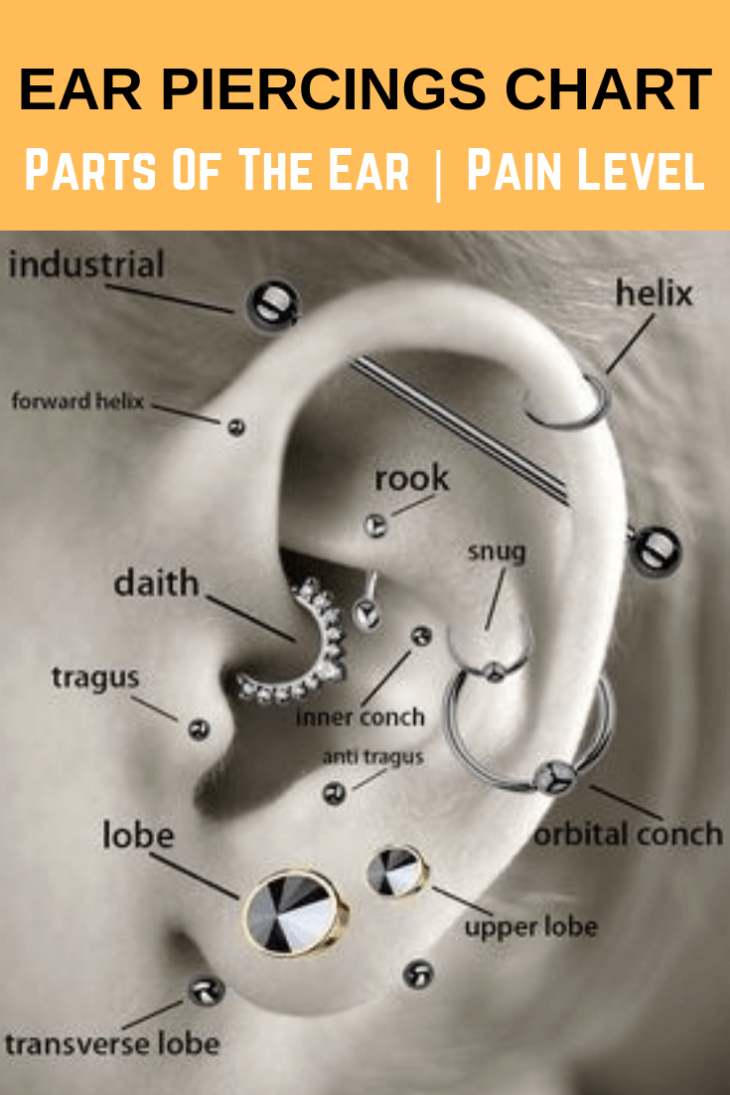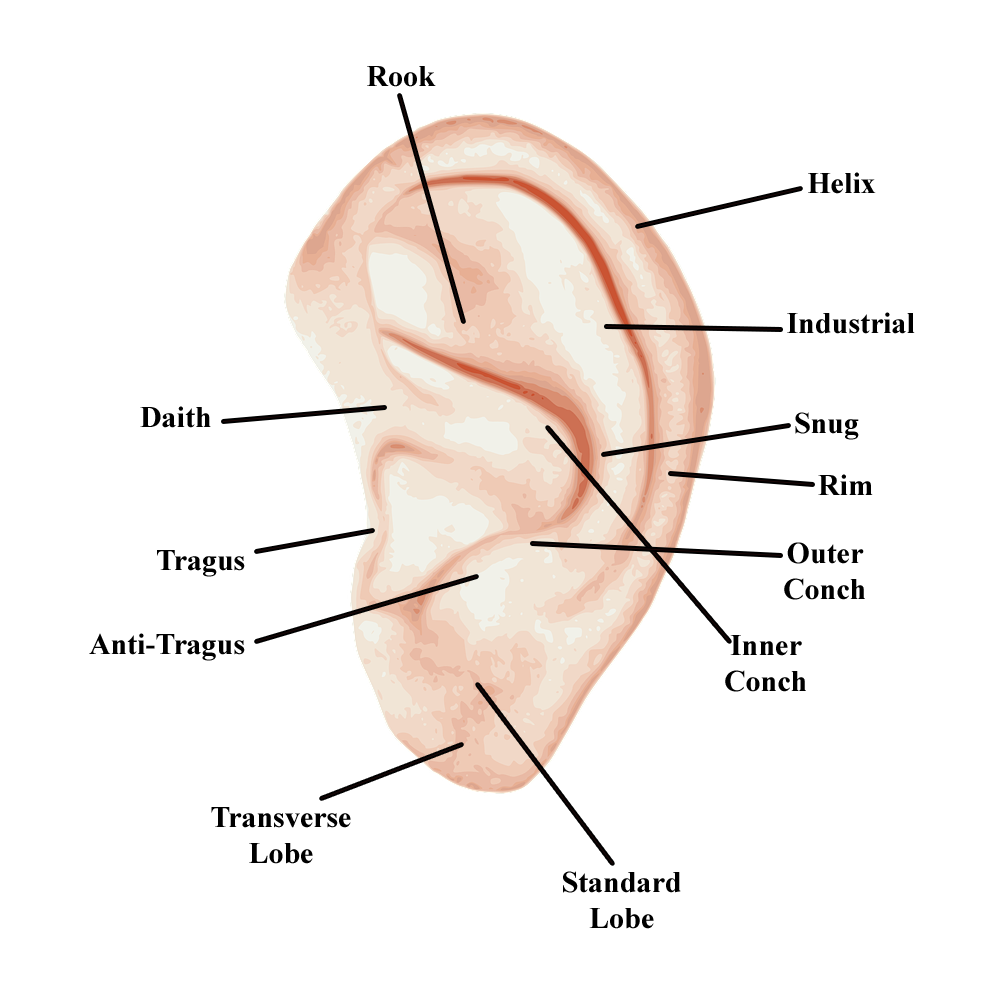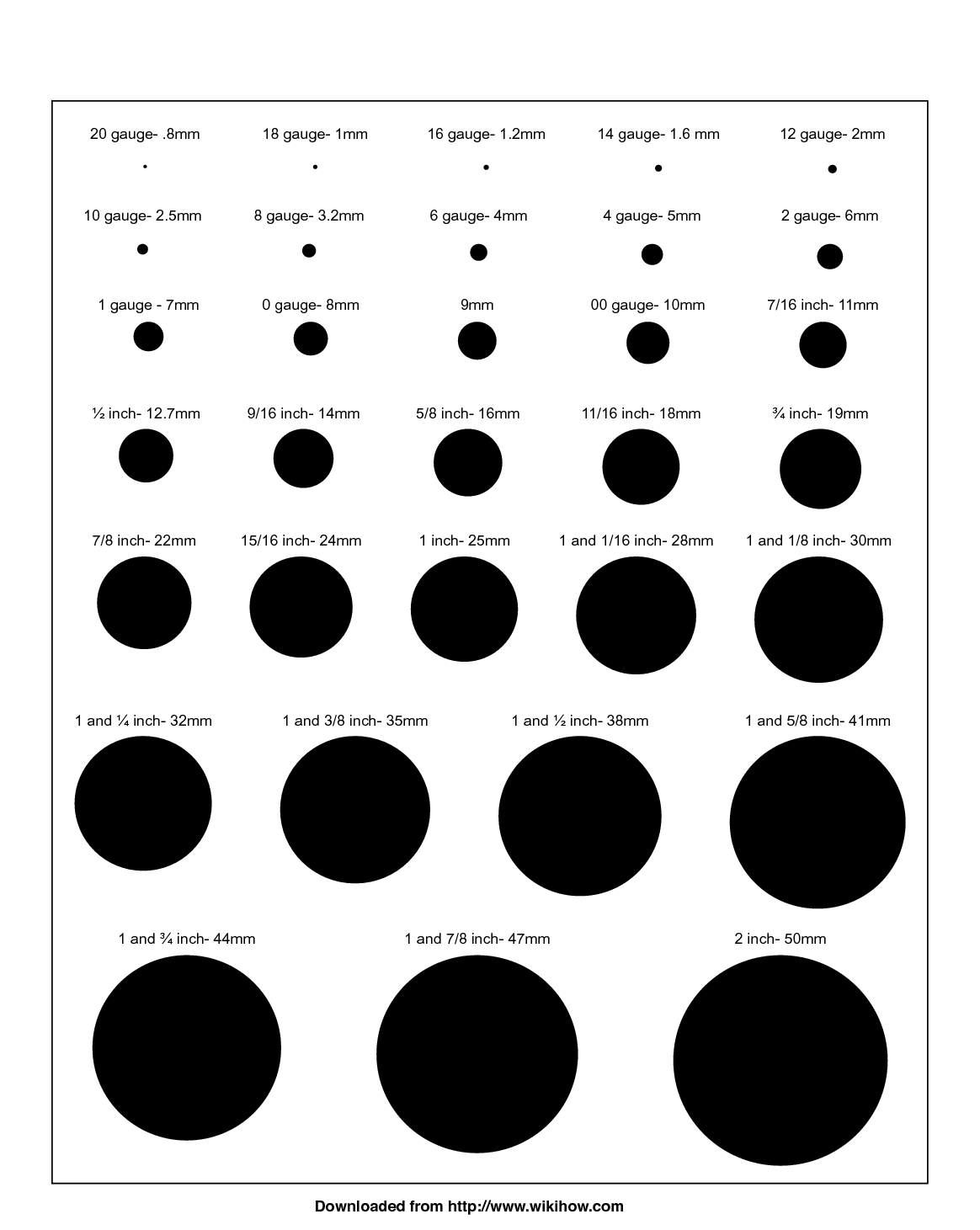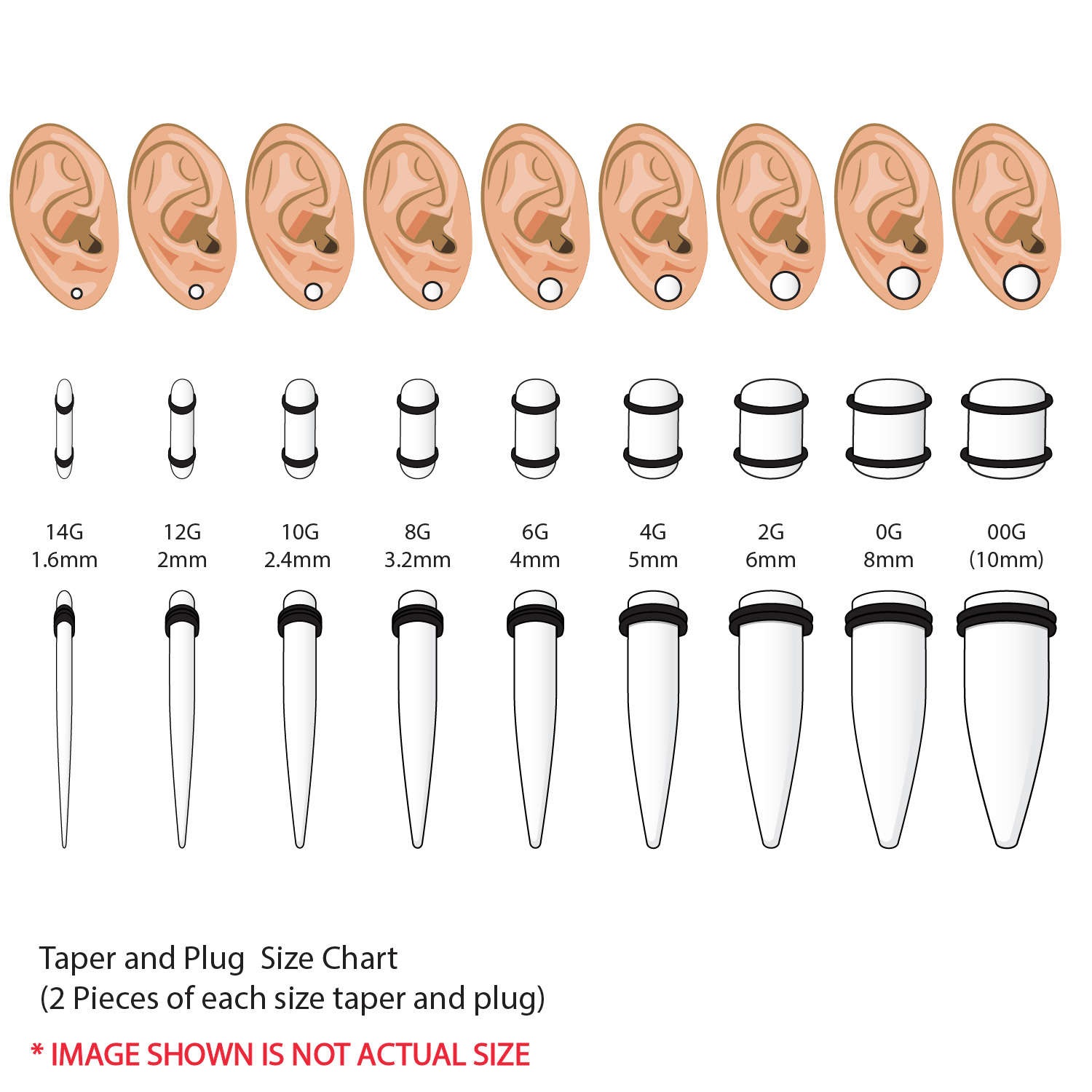
Beginner's Guide to Ear Stretching TatRing
The standard gauge size for most ear piercings is 16G. Gauge Size to Inches to Millimeters Conversion Chart MEASURING BARBELL LENGTH Length specifically refers to the wearable barbell portion that goes through your piercing. It does not include the jewels, charms, or balls.

Pin on Jewelry Fashion
The most common gem size for nose studs is 2mm (pictured above), which is considered dainty and small! For helix and tragus piercings, we carry styles that range from 2mm to 4mm+ (pictured above) with a ton of designs to choose from to find the perfect piercing for you. For earring studs, we carry a range of options from 2mm to 10mm.

ear stretching sizes / guide Ear piercings gauges, Stretched ear lobes, Stretched ears
Piercing Jewelry Diameter What Is The Diameter Of My Body Jewelry? Diameter is used to measure the size of round barbells like hoops, captives, and circulars. It is measured from the inner and widest point of the circle. Captive Bead Rings

Why you shouldn’t do a piercing on your own The Wildcat Voice
O nce upon a time, a single ear lobe piercing was considered the norm. Over time, one lobe piercing turned to two, and eventually, two turned three, four, five, welcoming helix, conch, tragus, and.

17 best Body piercing information images on Pinterest Piercings, Body piercings and Jewerly
Earlobe, piercing 1 and 2: 6.5mm Earlobe, piercing 3 and up: 5mm Hoop Sizing From snug at 5mm to spacious at 15.5mm, our ring diameters are designed for all-day wear. A patented clicking mechanism ensures your piece stays secure.

Ear Piercing Chart Ear piercings chart, Types of ear piercings, Piercing chart
But to put the sizes into perspective, when you first get your ears pierced with a traditional earring, it will likely be either a 20g or 18g and then you would stretch to the next size up which is either 16g (1.2mm or 3/64") or 14g (1.5mm or 1/16"). So you work down the scale of gauges the larger you stretch your ears.

Common Types of Ear Piercings and the Multiple Names for the Same Piercings Tattoo Consortium
Ear Gauge Sizes Explained: Understanding Earlobe Piercing Sizing and Dimensions Earring gauge sizes (Ear Gauge Sizes) represent the sizing options available to stretch ears based on the uniform standard of measurement used in the body jewelry industry.
/Stocksy_txp2d27f43ac4w200_Medium_3543709-crop-785c58d6319a4cc8870e211a27b2f774.jpg)
The Best Types of Ear Piercings See Our Chart For Ideas
6-8 weeks. 15-60$. Trident. Trident shaped jewelry goes vertically through the entire ear, from lower to upper cartilage. 7 of 10. 4-8 months. 40-70$. Dermal. Only one visible hole in the ear, a catch-all term for under skin piercing.

THE TATTOOED GENIUS EAR STRETCHING 101
(pronounced /ɡāj/) The gauge of a body jewelry piece refers to the thickness of the barbell going through your body piercing. The higher the gauge, the thinner the barbell. For example, a 22G barbell is going to be very thin, and a 14G barbell is going to be thicker.

a black and white poster with different types of jewelry on it's back side
The most common ear gauge piercing sizes are 18 gauge, 16 gauge, and 14 gauge, and you can see actual real-life pictures in the table below. How big you want to go depends on your preferences, but most people go for somewhere between 14g and 18g. Ear gauge size chart with actual real-life pictures How big do you want to go?

BodyJ4You 37PC Gauges Kit Ear Stretching Aftercare Balm 14G00G Taper Plug eBay
The most common gauge sizes for ear piercings are 20G (0.8mm), 18G (1mm), and 16G (1.2mm). 20 gauge (0.8mm): Most people start with the thinner 20G post gauge especially for earlobe piercings. A standard earring post gauge is 20G, and they are available in butterfly push-back or ball-back.

How to Stretch Your Ear Piercing to a Larger Gauge
Meet the most common ear piercings and our size recommendation for each based on what works for most people. Every piercing is unique, so if you still have doubts about cartilage earrings sizes, seek advice from your local piercer. HOOPS SIZE GUIDE. Location. Thickness. Length. Lobe. 20G / 18G / 16G. 6mm / 8mm / 10mm. Helix. 18G / 16G.

Ear Piercings and Cuffs Explained read before you buy [3 min post]
Here, we will explore three common needle sizes for ear piercings: 14 gauge, 16 gauge, and 18 gauge. 14 Gauge. The 14 gauge needle is one of the larger sizes commonly used for ear piercings. This size is often preferred for initial piercings or if you are planning to wear larger or heavier earrings. The 14 gauge needle provides a wider opening.

Pin on ink
Pain Level: 6/10. Healing time: 3-10 months. One of the more unusual inner-ear piercings, a rook piercing inserts in the inner cartilage, above the daith and between the inner conch and the forward helix. As a cartilage piercing, the rook doesn't pierce as easily as say, the lobe.

Ear Piercing Diagram Ear piercings, Ear parts, Piercing
Standard ear piercings are a 20g or 18g if they were pierced by a gun. If they were pierced by a professional, the lobe piercing will typically be a 16g or 14g. After a minimum of two months it is typically safe to change the jewelry, but the piercing may still feel sensitive. After waiting six months to a year, the earlobe is safe to stretch.

73PC Gauges Kit Ear Stretching Aftercare Balm 14G00G Acrylic Teardrop Tapers Plugs Set in 2021
"Standard size is 18 g, which is what I mostly use for all my ear piercings," Thompson says. "For piercings in general, 18 g through 16 g is the most common. For nipple or navel piercings, 14 g through 12 g is the most common. For larger gauges—like stretched ear lobes—the smallest gauge usually starts at size 8 and goes up from there."